Regenerative Farming: How Your Chickens Can Enrich Your Farm
Are you interested in a way of chicken farming that makes your chickens healthy and happy while enriching the soil on your farm? There’s a way to do it, and it’s called regenerative farming!
This revolutionary farming method is nothing to cluck at. At The Mobile Chicken House, we focus on portable, humane, and efficient solutions that meet your flock's needs and support sustainable farming methods. Our mobile chicken coops and broiler houses allow your birds to roam and improve your land naturally.
Whether you are already implementing regenerative farming practices or just curious how they could fit into your routine, we’ve gathered our knowledge to help you learn more about regenerative chicken farming.
Ready to work smart and not hard? Read on!
Creating a Balanced Habitat
Imagine your chickens wandering in open fields as they happily scratch and peck at the earth under the comforting shade of trees. Your chickens become healthier, yield better eggs and meat, and your soil becomes more fertile. That’s regenerative chicken farming!
Regenerative chicken farming focuses on mimicking natural ecosystems, vastly improving the chickens' lifestyle and the land's health.
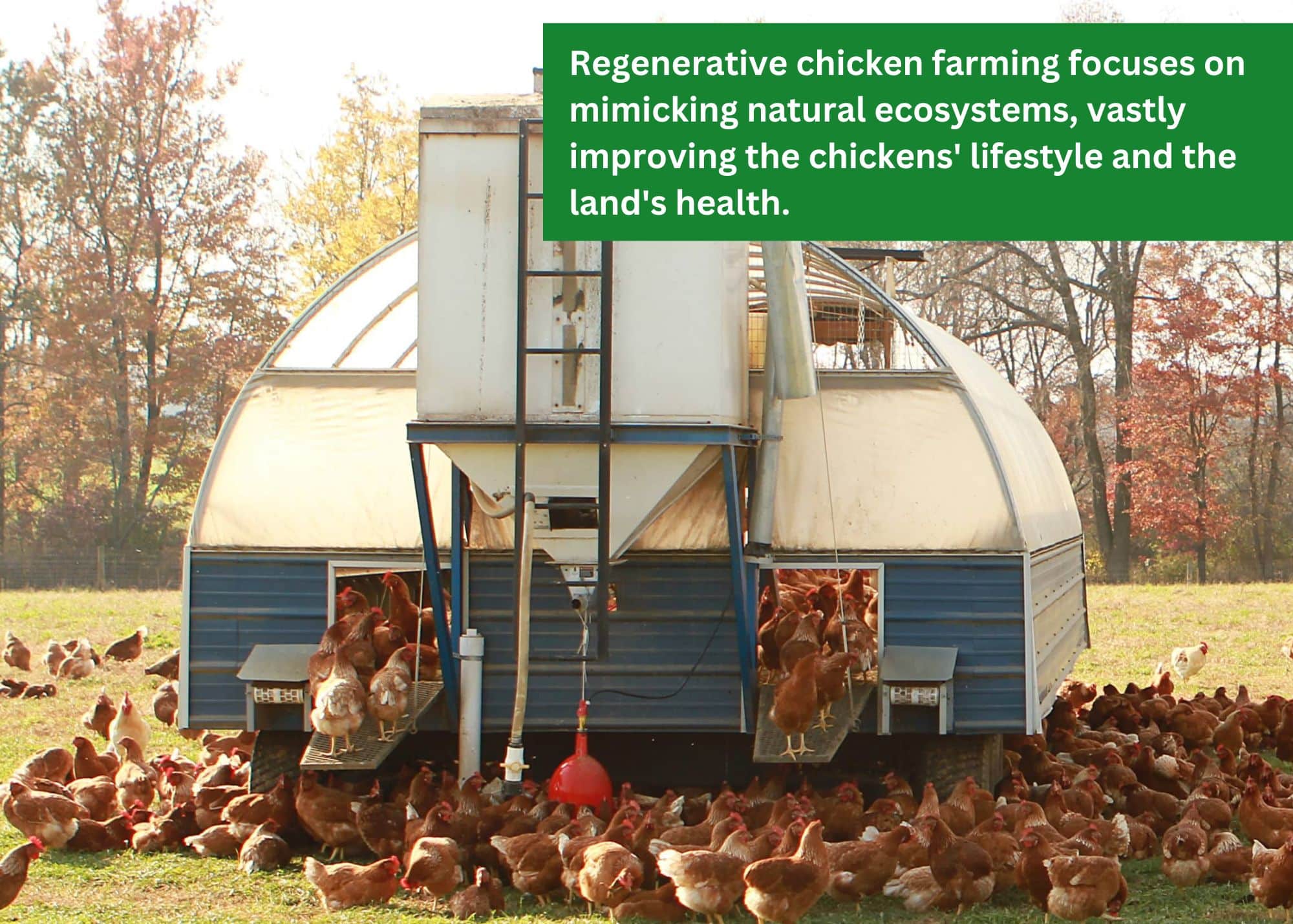
By surrounding the chickens with trees and woody perennials, you create a haven that protects them from predators and inclement weather. The trees' canopies and roots offer vital shade and shelter, allowing the chickens to live in conditions closer to their instincts.
Creating a solid habitat extends beyond just planting trees. It involves understanding the unique relationships between different plant species and how each contributes to the well-being of your chickens. By strategically planting, you can sustainably cultivate a habitat that enhances your flock’s natural behaviors and boosts egg production. Learn more about maintaining balance on your farm in our previous blog post, “Striking the Perfect Balance: Boosting Egg Production Sustainably on Your Farm.”
Benefiting From Symbiosis
The age-old question of “Which came first, the chicken or the egg?” may have been someone pondering regenerative farming. If done correctly, your chickens are an integral part of your farm and that great circle of life.
One of the significant aspects of regenerative chicken agriculture is the symbiotic relationship between chickens and their environment. As your flock roams, their droppings fertilize the trees and plants around them, adding rich nitrogen deposits necessary for plant growth.
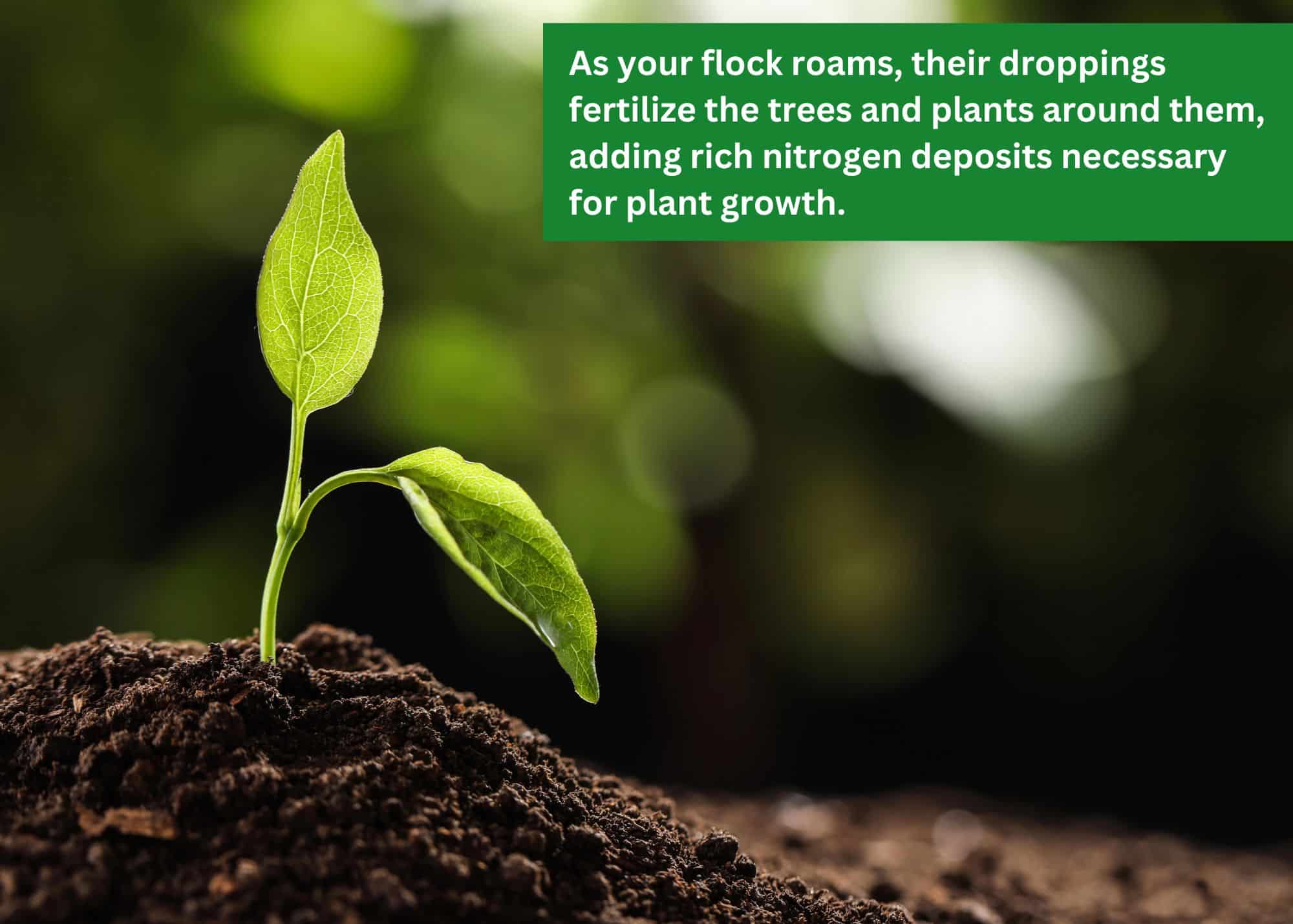
In turn, the enriched environment offers chickens a variety of seeds, greenery, and insects such as grubs, termites, and ticks to peck at. The chickens lay eggs, new chicks are born, and the cycle repeats.
This exchange is a circle of life that keeps the ecosystem thriving. Using mobile chicken coops like those we offer at The Mobile Chicken House, you can move your flock to cover new sections of land. This method spreads their beneficial by-products evenly and prevents overgrazing and soil degradation. Putting the chickens in new scenery also keeps them mentally stimulated. It’s an effective way to implement rotational grazing while ensuring your chickens contribute positively to their surroundings.
Enriching Soil Health
Healthy soil is vital for any farm. Chickens are important as their natural actions help aerate and enrich the earth. Their scratching allows the soil to absorb water more efficiently, promoting robust plant life. Moreover, their manure, rich in nitrogen, is a potent natural fertilizer that boosts the earth's health, leading to better crop yield. Using chicken manure that’s lying about will reduce time and costs since you won’t have to buy additional fertilizer or pay for the labor to spread it.
For farmers looking into regenerative techniques, proper soil management is crucial. Rotating your chickens’ grazing areas using mobile coops creates a balanced ecosystem where the soil and chickens thrive.
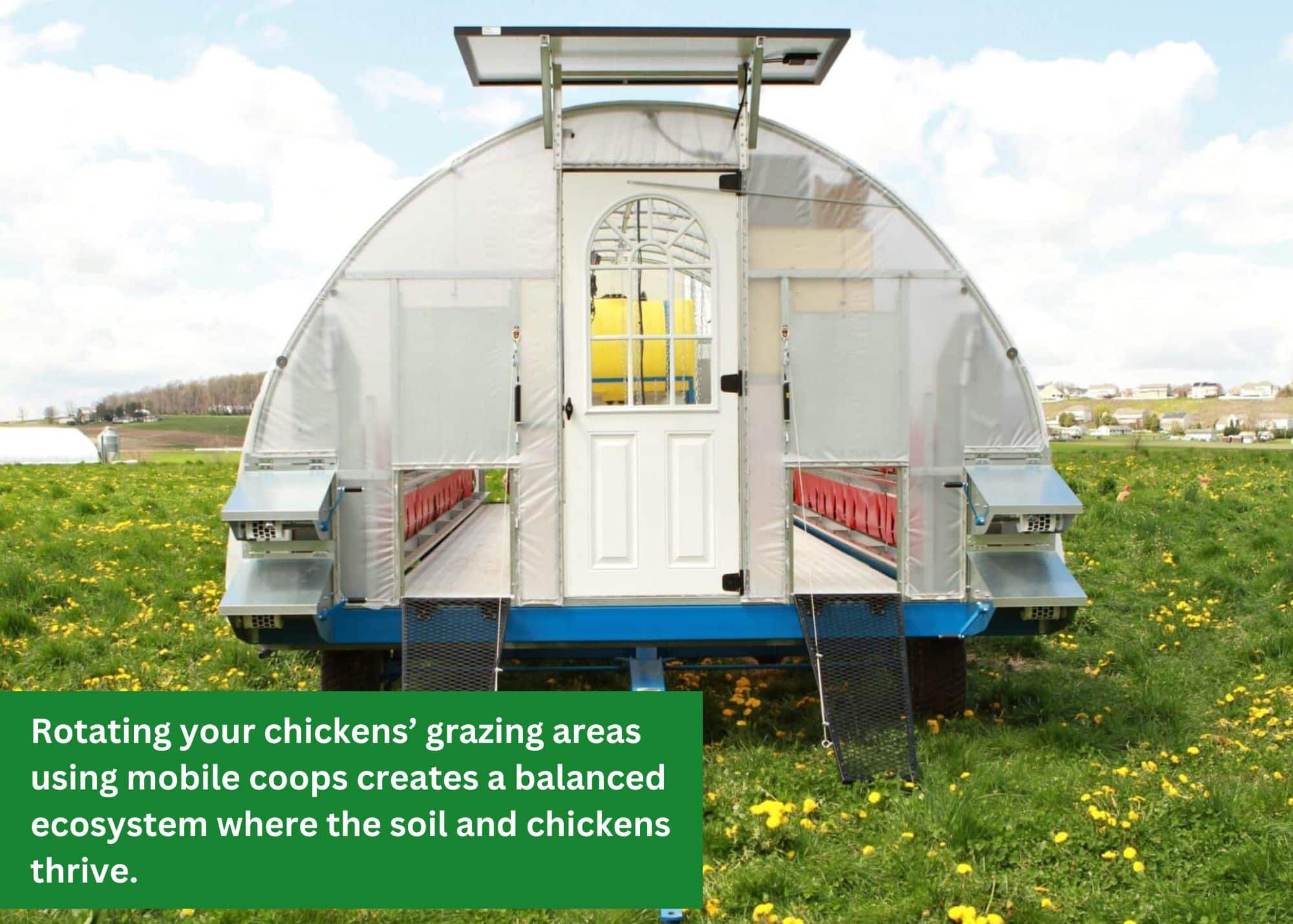
In “The Ultimate Guide to Training Your Chickens for a Mobile Chicken House," you can dive deeper into the benefits of managing chickens in mobile settings.
Improving Chicken Health
A varied diet leads to healthier chickens. In a regenerative farming environment, chickens naturally access diverse food sources. This varied diet, from insects and small critters to nutritious plants, ensures they get all the nutrients needed to maintain good health.
An excellent example of how insects can benefit your chickens is the black soldier fly larvae, a nutritious, high-protein snack with balanced nutrients, including essential fats and minerals. They’re also high in calcium, which is beneficial for strong eggshells.
Your chickens also eat grass as a part of their natural diet, so increased soil health results in superior pasture grass density and quality. Furthermore, chickens raised on such rich grounds are less likely to need medical interventions, as they are generally healthier and more resilient.
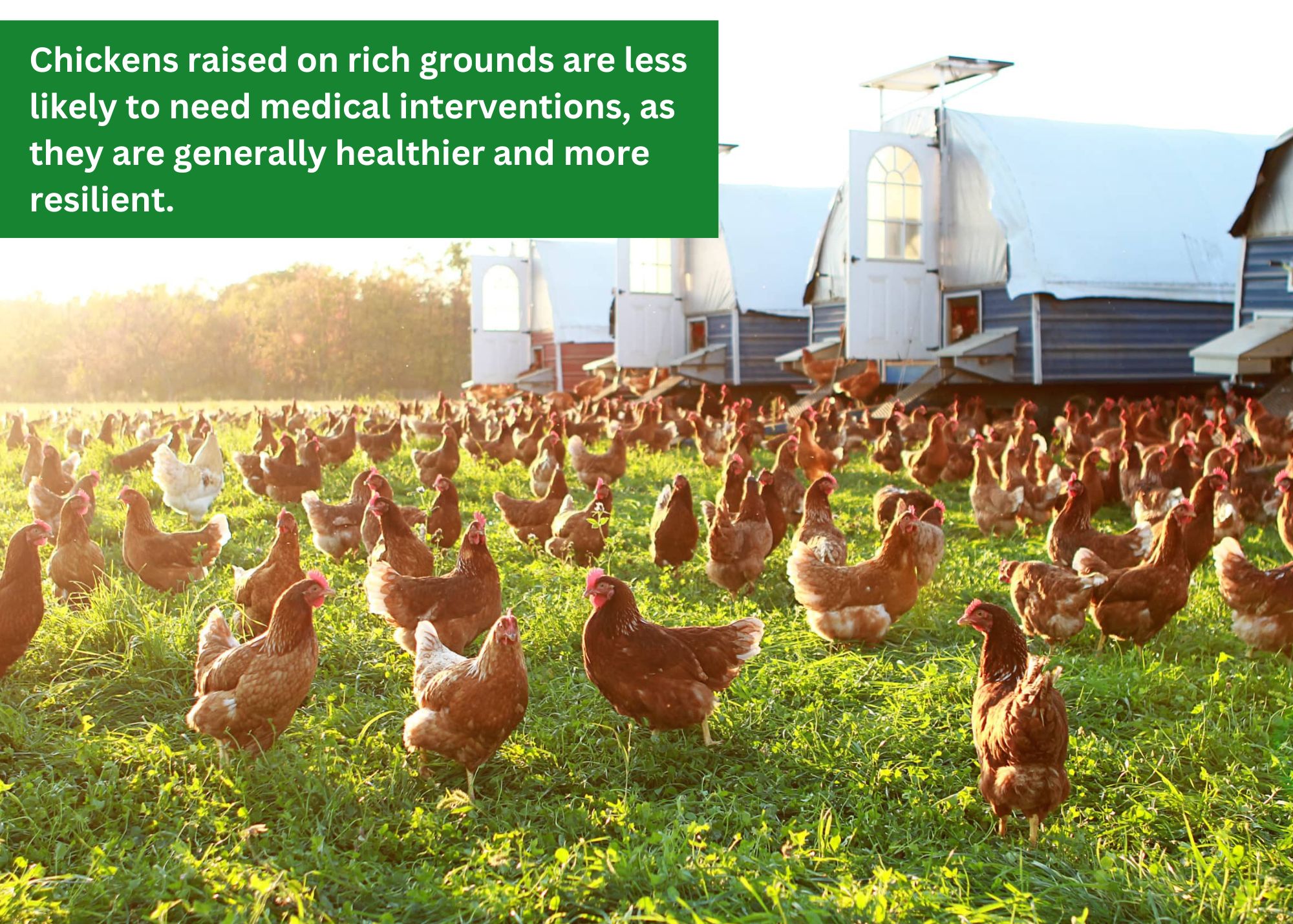
For more on keeping your chickens healthy and the secrets to outstanding egg production, check out “How To Keep Your Chickens Healthy (and Get Amazing Eggs) – The Ultimate Guide.”
Enhancing Meat Quality
The quality and flavor of meat produced by pasture-raised chickens following regenerative farming practices is much higher quality than the meat of conventionally raised birds. Thanks to their nutritious diet and active lifestyle, these chickens contain higher omega-3 fatty acids, less saturated fat, and more essential vitamins, including A, D, and E, which support a healthy immune system. Chicken meat also factors into good mental well-being – so raising food meat is suitable for your consumers!
The benefits are clear: not only are you fostering a healthier flock, but you’re also providing high-quality, nourishing meat for consumers. Regenerative farming is about investing in the future – of your farm, your animals, and the people who enjoy the fruits of your labor.
Elevating Egg Quality
That’s right, it’s not just the meat that’s improved, but the eggs, too! The overall improvement in the quality of life for the chickens – from the environment, exercise, socialization, and food – contributes to producing better eggs.
Compared to conventional eggs raised on traditional feed, pasture-raised eggs have twice the amount of omega-3 fatty acids, three times more vitamin D, seven times more beta carotene, and ¼ less saturated fat.
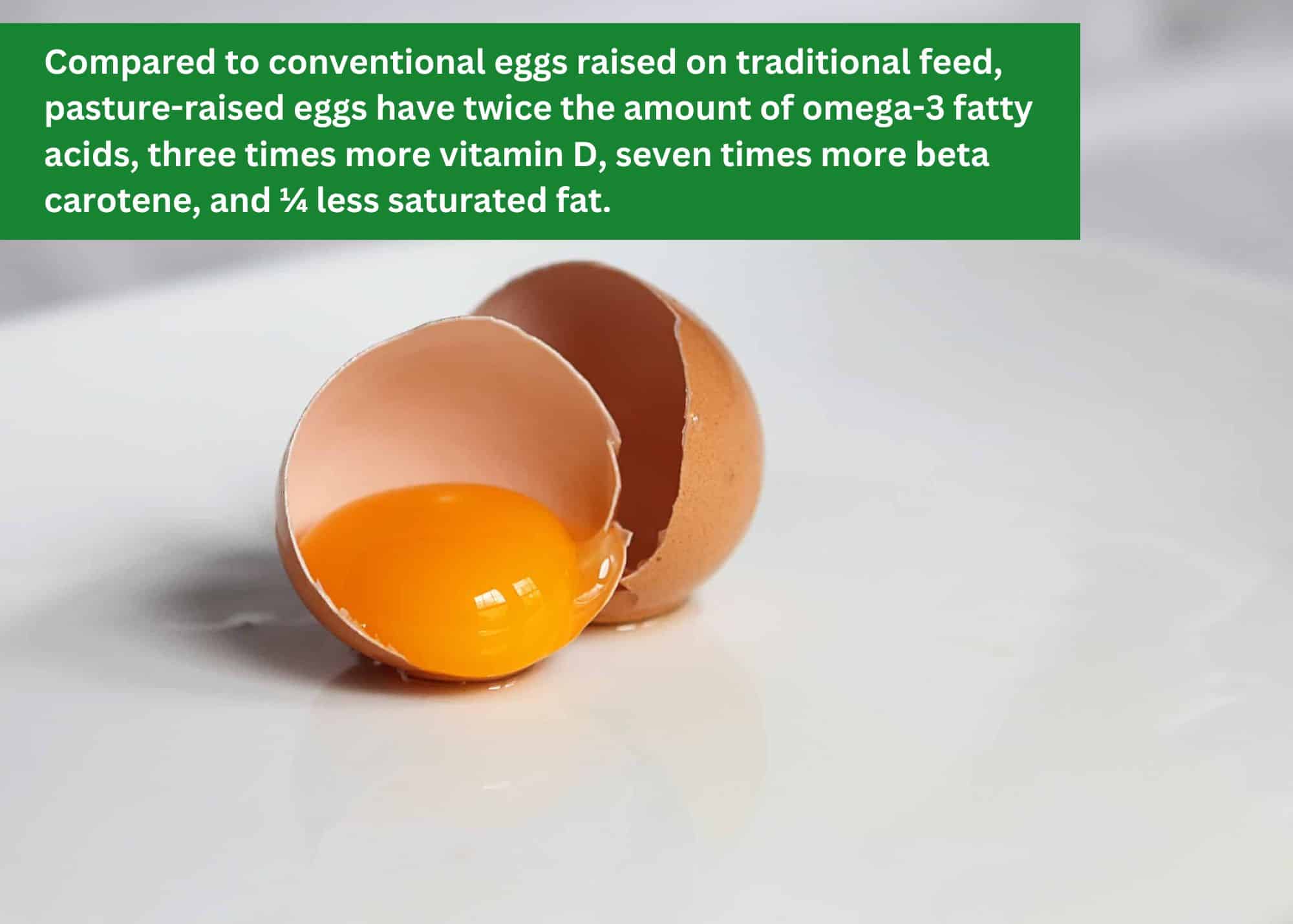
This leads to healthier eggs and healthier consumers.
We are so passionate about raising healthier chickens and eggs that we’ve condensed our knowledge and experience into our blog, “Pulling Back the Curtain on Eggs—Are They Healthy or Not?”
Enhancing Meat Quality
Beyond the immediate benefits to soil and livestock health, regenerative chicken farming is crucial in addressing broader environmental challenges. By creating ecosystems that sequester carbon, regenerate degraded soil, reduce erosion, and better manage water resources, regenerative methods contribute to a cleaner, more sustainable environment.
Take fertilizer, for example. Industrially produced fertilizer has a massive carbon footprint and releases nitrous oxide, a greenhouse gas with significant global warming potential. However, you can reduce reliance on manufactured fertilizers by allowing your chickens to generate fertilizer.
Scratching also benefits the soil by turning the surface slightly, which aerates the top layer. While tilling may be necessary in many cases, allowing chickens to scratch and only tilling when needed will minimize soil erosion and degradation.
Chickens contribute to this solution by simply living as nature intended. Their actions can help filter water, reduce air pollution, and increase land resilience against environmental issues. Suppose environmental stewardship is a key value for your farm. In that case, regenerative chicken agriculture provides a framework that aligns with these goals and helps reverse some of the harm farming has done to our environment.
Conclusion
Chicken farming is hard work, and The Mobile Chicken House wants to make it more rewarding! We are here to support you every step of the way with innovative, efficient, and practical solutions. Explore how our mobile chicken houses and portable chicken coops can help transform your approach to poultry farming and align with nature’s wisdom.
By embracing regenerative chicken farming, you are stepping onto a path that benefits the soil and your chickens and contributes positively to the larger environment. Take a closer look at our range of products designed to enhance efficiency and sustainability on your farm, and consider how you can integrate regenerative practices into your daily routine.
We can work towards a healthier planet, one chicken at a time.
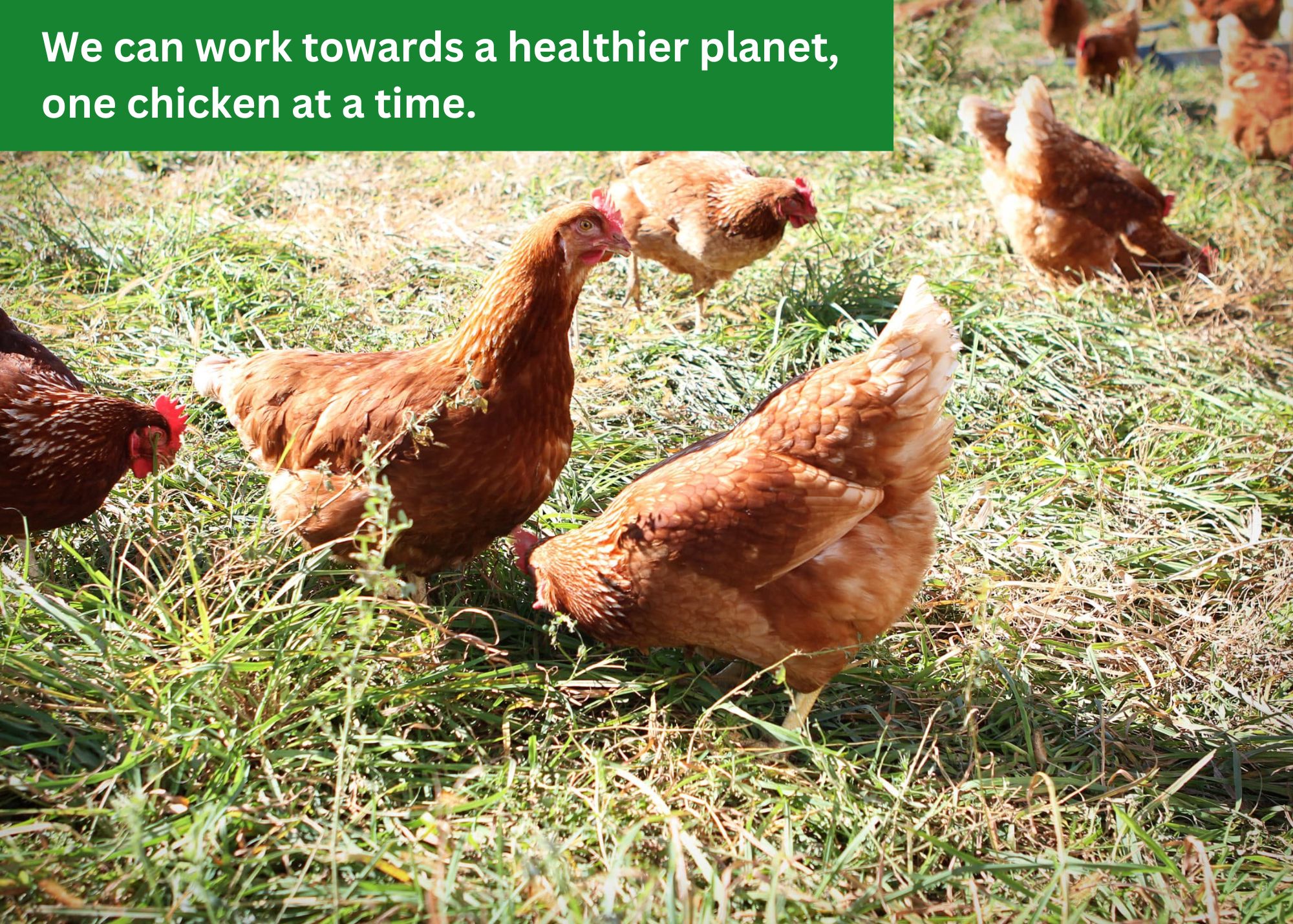
Contact us today to start your journey!








